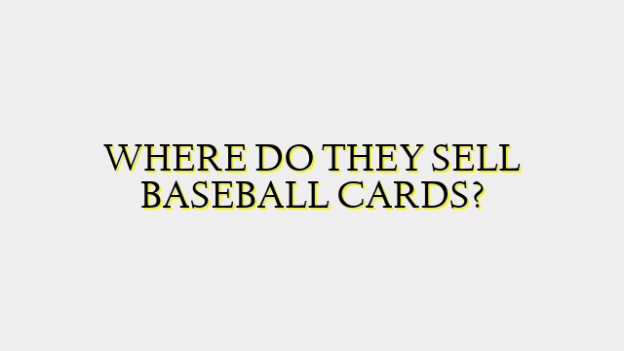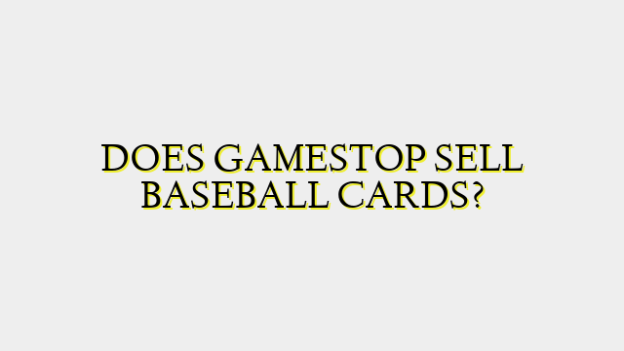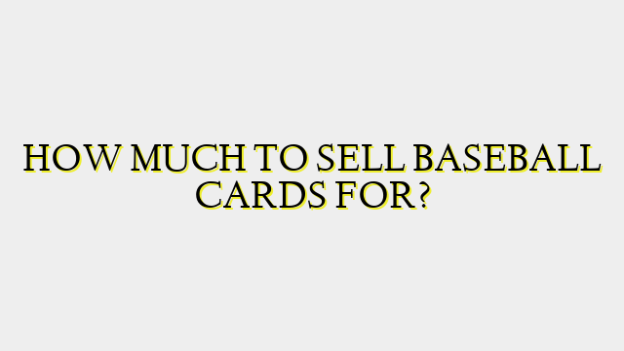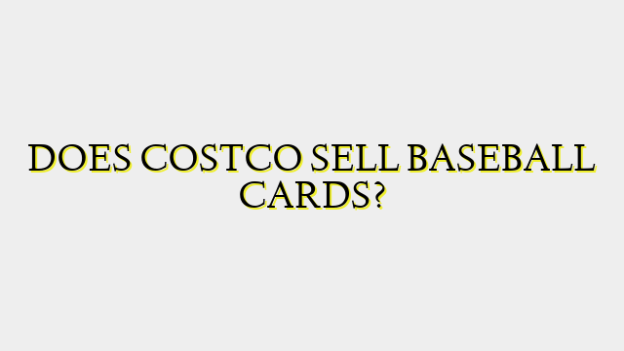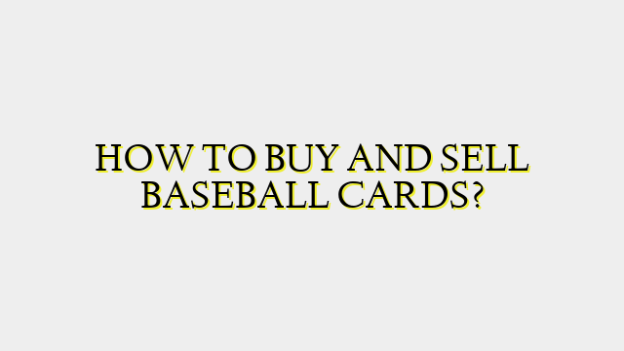Baseball card shops: Baseball card specialty shops are dedicated solely to the trade of sports cards, including baseball cards. They will have the largest selection of new and vintage baseball cards available. Many card shops buy, sell and trade cards. They offer the ability to search through boxes of cards looking for players you collect. Baseball card shops can be found in most major cities and many smaller towns across the United States and Canada. Some large national chains include Sportscard Collectibles and Baseball Card Exchange.
Card shows/conventions
Regularly held card shows are great opportunities to browse cards from dozens of vendors all under one roof. Some of the largest and most popular annual shows include the National Sports Collectors Convention ( NSCC) held in various cities each summer and fall. Here you’ll find tables lined up of vendors selling both new packs/boxes as well as singles/collections spread out for viewing. Prices tend to be competitive at shows since there are multiple sellers to choose from.
Online auction sites
Websites like eBay and Amazon have massive sports card markets with hundreds of thousands of baseball cards being sold each day. The benefit of auction sites is the ability to search from home for very specific cards you want. Condition can vary more than at retail shops. Fees are charged on final sale prices. Reputable longer-standing sellers will typically accurately represent what they are selling.
Retail stores
Sporting good stores such as Dick’s Sporting Goods and specialty hobby/game stores like Funagain Games may carry a basic selection of modern baseball card products like packs, boxes and accessories. Department stores close to the baseball season may display packs and memorabilia as well. Selection and condition varies more widely than at dedicated card shops.
Card shows/conventions
Regularly held card shows are great opportunities to browse cards from dozens of vendors all under one roof. Some of the largest and most popular annual shows include the National Sports Collectors Convention ( NSCC) held in various cities each summer and fall. Here you’ll find tables lined up of vendors selling both new packs/boxes as well as singles/collections spread out for viewing. Prices tend to be competitive at shows since there are multiple sellers to choose from.
Online peer-to-peer sites
Websites such as Reddit sports card subs and Facebook groups allow card collectors to connect and trade directly with each other. Users post what they have for sale/trade and inquire about wanted cards. Condition can be unknown without seeing in-person. Trust must be established between buyers/sellers.
Charity/fundraising auction sites
Sites like eBay Gives and CharityBuzz facilitate online auctions of unique sports memorabilia and rare cards with proceeds benefitting charities. Prices can be high given it’s for a good cause but quality control on condition/authenticity isn’t as high as traditional auction houses.
Auction houses
Established auction houses like Heritage Auctions and Lelands sell high-value vintage/rare graded cards through traditional online and in-person auctions. Buyers pay a premium but can be assured of authenticity, condition represented, and the ability to return questionable items. Reserve prices are usually high.
While retail stores and online sellers offer convenience, the widest selection of both modern and vintage baseball cards can be found at dedicated card shops, shows, and reliable online peer-to-peer marketplaces. Going to see cards in-person is especially valuable when condition or authenticity might be a question. With so many options, there is usually a way for any collector to add to their baseball card collection.

